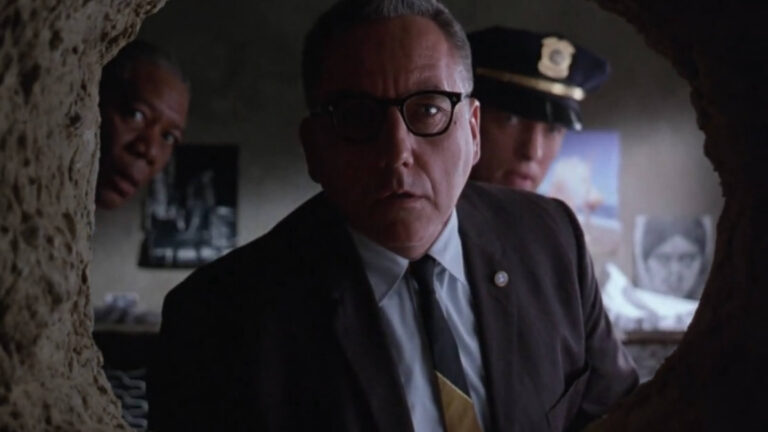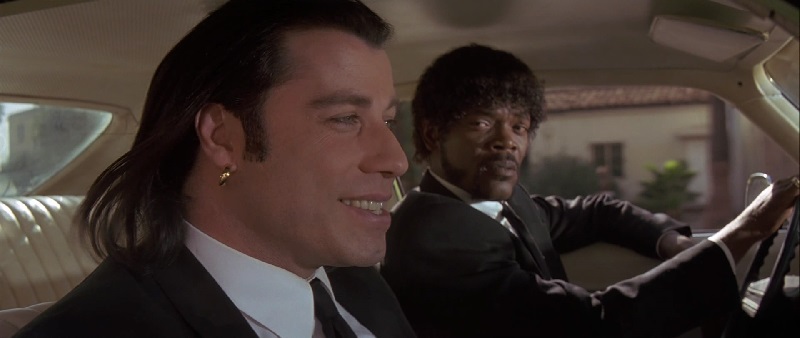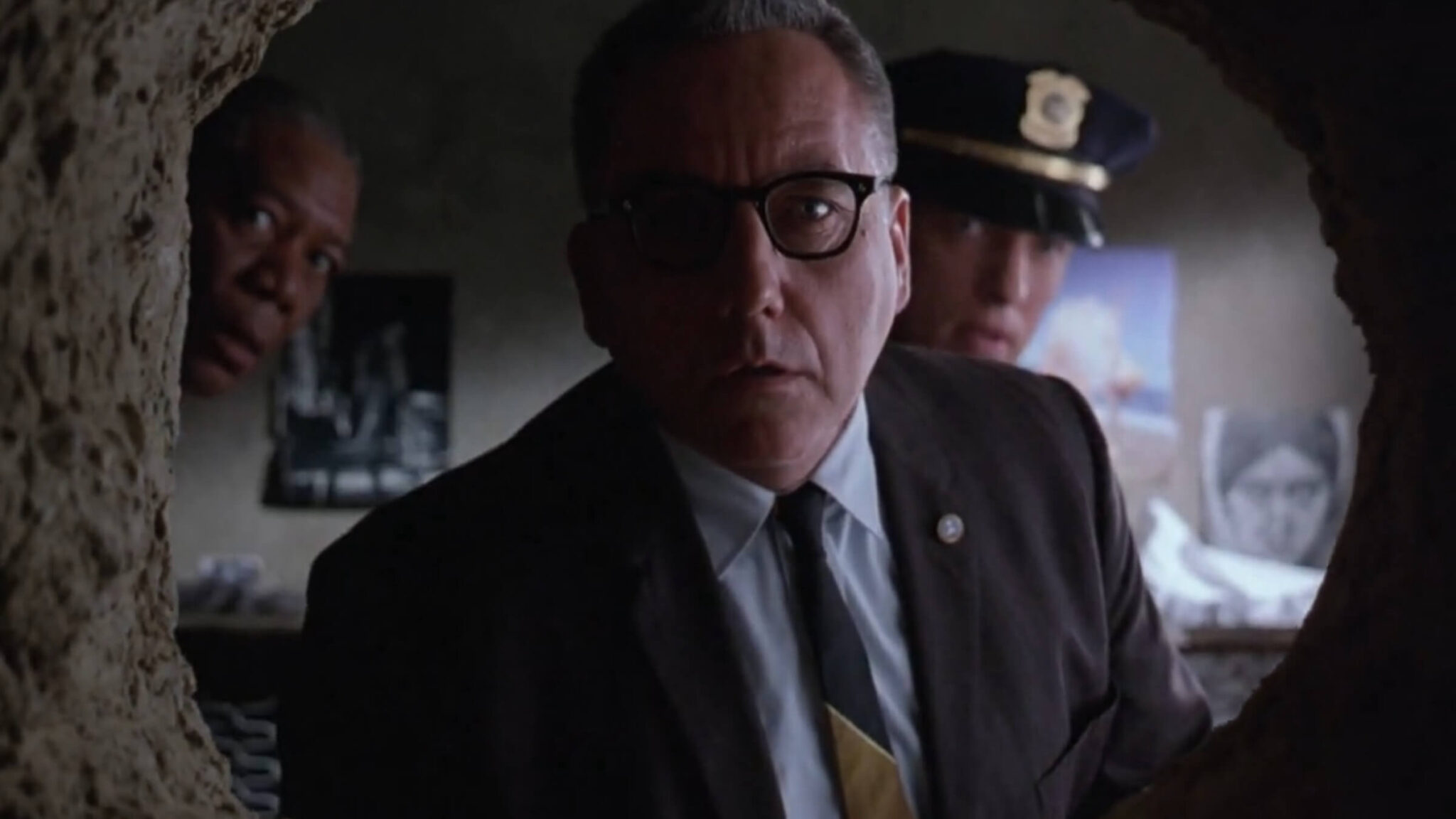What is a Plot Hole and How Can You Avoid Writing Them?

Ah, plot holes — those pesky narrative inconsistencies that plague all writers regardless of their experience level. You know one when you see one. It's the illegal crane kick in The Karate Kid, the choice to train deep-core drillers to be astronauts in Armageddon, or Bruce Willis's time off-camera in The Sixth Sense. (What was he doing and wasn't he curious as to why no one would interact with him!!?) There's a lot to unpack when it comes to plot holes, so let's go over the definition, the most infamous examples in film, and ways to spot them in your own writing so you can avoid them.

Plot Hole Definition
Plot (plät) — the main events of a play, novel, movie, or similar work, devised and presented by the writer as an interrelated sequence.
Hole (hōl) — a hollow place in a solid body or surface.
Plot Hole (plät hōl) — a gap or inconsistency in a storyline that goes against the flow of logic established by the story’s plot, or constitutes a blatant omission of relevant information regarding the plot. These include such things as unlikely behavior or actions of characters, illogical or impossible events, events happening for no apparent reason, or statements or events that contradict earlier events in the storyline.
We see them within even the highest quality of movies that come to the big and small screen. And they come in all different shapes and sizes.

Three Categories of Plot Holes
Movie plot holes can be broken down into three distinct categories:
- Moderate Plot Holes
- Excessive Plot Holes
- Over the Top Plot Holes
Moderate Plot Holes
Moderate plot holes are minor in the big scheme of the story and are caused by a number of reasons.
- Budget limitations
- Production scheduling issues
- Writing oversights
- Easy answers to solving a character's problems

These types of plot holes don't drastically affect the overall narrative and are either reasonable, forgivable, or neither excessive nor insufficient. You'll usually find them in individual scenes, rather than throughout the whole cinematic story.
Excessive Plot Holes
Excessive plot holes are a bit more major, specifically affecting the overarching character arcs throughout the entire story. The story itself may not falter because of these plot holes. However, the characterization elements of the story may be drastically affected.
- Intelligent characters making unintelligent decisions.
- Unintelligent characters outwitting intelligent characters.
- Heroic characters acting unheroically.
- Unheroic characters acting heroically.
- Characters going against their established beliefs.

You can have moderate plot holes pop up in individual scenes, and you can have excessive plot holes present within the characters of a story — all while still providing an engaging cinematic experience (see any major action-filled rollercoaster flick).
But it's the over-the-top plot holes that can derail the cinematic experience altogether.
Over-The Top Plot Holes
Over-the-top plot holes involve the overarching story and how it is presented. When you negatively challenge the logic of the story you are trying to tell, the audience will disengage. The conflict facing the characters will likely be deemed unbelievable. And when that happens, you've lost the audience.
If a character is facing the ultimate conflict and suddenly has unexplained powers or unbelievable luck, the audience won't be invested in the drama of the moment because the stakes are no longer high, and the conflict is no longer interesting.
Some of these plot holes are more tolerable than others. Some genres — horror, science fiction, fantasy, comedy, and action — call for audiences to suspend their disbelief in exchange for pure and utter entertainment. But writers need to tread carefully when deciding how far they want to push that plot hole envelope.

Five Types of Plot Holes
1. MacGuffin Plot Inconsistencies
These arise when the narrative presents inconsistencies related to MacGuffins, which are objects or goals that drive the plot forward, sought after by protagonists for various reasons.
Read More: Everything You Need to Know About MacGuffins
2. Logical Plot Incoherencies
These occur when certain elements of the story lack logical consistency, whether it's within the real-world context or in relation to the rules and setups established by the screenwriters and filmmakers.
3. Character Plot Discrepancies
These involve inconsistencies in characters' decisions, sudden introduction of unexplained abilities to resolve conflicts, or any deviations from established character traits.
4. Narrative Plot Discrepancies
Narrative plot holes refer to gaps or irregularities within the storyline that disrupt its coherence.
5. Deus Ex Machina Plot Flaws
These emerge when an apparently unsolvable or insurmountable conflict is suddenly resolved through the introduction of a new character, skill, or object.

Why Plot Holes Happen
It's easy — and lazy — to immediately point fingers at the screenwriter. Sure, there are many cases where screenwriters are to blame. However, the process of development and filmmaking as a whole only begins with the written word. There are many filter systems in place before a movie is released to the masses — script readers, development executives, producers, directors, script supervisors, and talent. The blame doesn't just fall on screenwriters.
Too Many Hands in the Cookie Jar
In Hollywood, notes are offered ad nauseam to screenwriters from a plethora of sources, including:
- Development executives
- Producers
- Studio executives
- Directors
- Talent.
That can amount to dozens of subjective opinions offered by people who have their own vision of the project at hand.

Screenwriters are tasked to apply the many different notes through many different drafts and then sometimes additional screenwriters are brought in to enhance certain elements of the script. When that happens, you now have multiple writers with their own creative perspectives. Thus, we see different shifts in tone, atmosphere, logic, character arc, story arc, etc. And they're stuck with it because the deadline has come and gone — and it's time to shoot.
Production
During any given production, things change.
- Production problems arise.
- Budget cuts occur.
- Schedules change.
- Interpretation of the script can be at odds.
Because film is a collaborative medium, by the time production is underway, many things can change — for better or worse.
The Edit
Many plot holes that you see in movies are a direct result of the final edit, and the many edits that came before it. The final cut is never representative of the shooting screenplay.
The edit can drastically change what was in the original shooting script.
- Pacing
- Tone
- Atmosphere
- Characterization
- Theme
Scenes are cut for any number of reasons. When that happens, those moderate, excessive, or over-the-top plot holes occur.

The Screenwriter
And yes, we do need to go back to the screenwriter now that we've thrown everyone else under the bus.
Plot holes are aplenty in the many drafts that a screenwriter can write. They are a product of many mishaps, including:
- Miscalculation
- Bad memory
- Complacency
- Naivete
- Laziness
Creative (and Forgivable) Choices
Sometimes a plot point is created to up the stakes.
Read More: Must-Read Analogy That Teaches "Raises the Stakes" in Screenplays
Other times, a movie just needs some added plot twists and turns to keep things interesting for the audience. Screenwriters, producers, and filmmakers do this knowing that someone could easily pick apart the logic of such choices. However, that suspension of disbelief asked of the audience will never go away. The people behind the scenes often go into these eventual plot holes knowing that they serve a greater good.
Plot Holes Examples
Okay, we know what plot holes are. We understand the different types of plot holes. And we also have an idea of why plot holes occur. Now let's take a look at ten examples to put everything in perspective.
Spoiler Alerts Below!
Cutting the Power Plot Hole in Die Hard
Despite Die Hard being one of the greatest screenplays ever written, it has many plot holes. The biggest — yet oddly overlooked — plot hole can be found in the power supply plot point of the film. Hans Gruber and his men concoct a scenario where they will trick authorities into thinking that they are terrorists. Because they know general tactics of the police and FBI, they expect them to cut the power, which would disengage the last security measure and allow them to access the fault.
Wouldn't it have been easier for them to send a team to cut the power themselves?
Nazis Digging in the Wrong Spot Plot Hole in Raiders of the Lost Ark
Indiana Jones and Sallah quickly discovered that the Nazis were searching in the wrong area for the Ark of the Covenant. If they had simply departed with the medallion, the Nazis would never have laid eyes on the Ark.
The Poster Plot Hole in The Shawshank Redemption
It's revealed that Andy tunneled his way out of prison after many years of work using only a small rock hammer. We're willing to forgive how long it would have taken him to do so (that is somewhat addressed in the film). However, if Andy crawled through the tunnel to escape, how was the poster reattached to the cell wall to cover his escape tunnel?
Unconscious and Time-Traveling Indy Plot Hole in Indiana Jones and the Dial of Destiny
Let's take it back to Indiana Jones — this time in the final chapter of the character's story. In the end, when Helena, Indy, and company have traveled back in time to the era of Archimedes. Indy wants to stay. However, Helena punches him out. Indy wakes up in his apartment. He has somehow been transported back to his present time and has been also transported back to his apartment. How did Helena do all of this without Indy waking up?
The Illegal Kick Plot Hole in The Karate Kid
Sure, we could explain this away. Many (yours truly) have. However, the plot hole of the illegal kick still remains. During the tournament, Daniel is told that kicks to the face are illegal. Yet he manages to win the whole thing with — wait for it — a kick to the face.
The Not-So-Quiet Place Plot Hole in A Quiet Place
A family lives in near-silence in a postapocalyptic world where aliens with acute hearing attack the slightest of sounds. However, the family does visit a waterfall area where the noise is so loud that they can talk freely. Why would they consider moving closer to the waterfall? Sure, they would have to build a new home and cart new supplies across the forest to do so, but it's moderate plot holes like this that make you think they could have used a line of dialogue to explain that.
Buzz Lightyear Freezing Plot Hole in Toy Story
This classic has its own plot holes. Namely, why did Buzz drop and freeze at the presence of Andy if he didn't think he was a toy? Sure, you could argue that any toy automatically freezes in the presence of a human. However, Buzz and Woody (as well as their friends) clearly don't freeze as they move about town. Heck, Woody even talks to Sid. So why did Buzz freeze when Andy walked into the room before he realized he was a toy?
Giant Eagles Coming to the Rescue Plot Hole in The Lord of the Rings: Return of the King
The entire Lord of the Rings saga hinges on the difficult cross-country journey that Frodo embarks on with various Fellowship peers. He's tasked with taking the One Ring to Mordor to throw it into the lava. Mission accomplished, Frodo and Sam are about to die until giant eagles summoned by Gandalf come to save them. Um, why didn't they just use those eagles to fly Frodo into Mordor in the first place? It would have saved literally thousands of lives. While the books may explain this, the movies don't.
Thousand-Some Police Officers Trapped Underground for Months Plot Hole in The Dark Knight Rises
It's one of the biggest plot holes in a movie full of plot holes. Supervillain Bane traps a thousand-plus police officers underground for months. How did they survive? And when they escape, how come they are clean-shaven with fully-pressed uniforms?
Old Steve Rogers in Avengers: Endgame
This is a plot hole that audiences just choose to forgive because it's such a cool character moment. Steve Rogers appears as an old man at the end of the film. It is revealed that during his time-traveling, he decided to go back and be with the love of his life, Peggy. It's a sweet and tender moment. And we love the fact that he finally got to be with her. However, how is he in the same timeline as the Avengers we grew to know that just went through years of conflict with Thanos and his minions?
How to Avoid Writing a Plot Hole
Screenwriters have no control over what happens to their script after they hand it over to the studio. So forget the many hands in the cookie jar during the development phase, the trials and tribulations of production, and the editing done in post-production.
But what can you do to avoid writing plot holes in your spec scripts?
Protect Your House of Cards
The final draft of a screenplay is a house of cards. And as is the case with any house of cards, when you remove one card, many will usually fall as a result.

Great screenplays build and build and build to something. And when you build upon elements as you try to reach a desired climax, each piece is not just important, but vital.
If in Pulp Fiction, Quentin Tarantino is tasked to eliminate the character of Jules, the ripple effect within the script would be disastrous. However, sometimes those types of choices need to be implemented.

Pulp Fiction (1994)
How you overcome this is by going back and witnessing each and every cause and effect.
- If Jules isn't there, then it's just Vincent in the car.
- And if it's just Vincent in the car, how are we able to keep the amazing dialogue about Royale with Cheese and other gems?
- Do we have Vincent on a car phone talking to Marsellus?
- Do we have Marsellus in the car with him as Vincent is dropping him off somewhere?
- If we do that, what is the cause and effect? How does that interfere with Marsellus's timeline?
Editing your script isn't just about cutting and pasting. It's about protecting that house of cards by carefully going back and seeing the cause and effect of every choice you make, whether those elements will be big or small.
Read Previously Written Pages Before You Write
Reading previously written pages before your next writing session is perhaps the most vital element of ensuring that there are little to no plot holes in your script.
Pacing, tone, atmosphere, and character portrayal can change depending on your state of mind during each writing session. Reading what you've written before you continue writing is key to preventing pacing holes, tone holes, atmosphere holes, characterization holes, and, yes, all types of plot holes.
- If you write ten pages on the first day of writing, on that second day be sure to read those ten pages before you write more.
- When you have twenty pages before your next writing session, ready those twenty pages before you continue with ten more.
- Continue this process before every single writing session you have.
When you do this, your mind will have each and every detail ever-present as you write on, thus you'll be less likely to miss out on those bigger or smaller elements within the story and character arcs, the action, the build-ups, and the eventual payoffs.
Read what you've written before you write and you'll always be on the same page with yourself to catch those plot holes.
Salt and Pepper Your Script
When you've reached that final draft, take the time to go through the whole thing from Page One to The End with your metaphorical salt and pepper shakers to season the story, plotting, and characters.

Find any and all opportunities to offer foreshadowing earlier in the script to set up moments later on. Foreshadowing can be the ultimate plot hole fix because you're well aware of the minor and major plot points as you do so, thus you'll be more apt to ensure that things are connected well.
Choose Your Requested Suspension of Disbelief Wisely
It's okay to ask the reader or audience to suspend their disbelief in exchange for entertainment. Logic shouldn't always be applied to film because film is fantasy. Even films based on true stories have to adhere to the fact that, in the end, there are only two hours (give or take) to tell a story that could amount to a lifetime in the real world. It's fantasy. And it's entertainment.
That said, a reader or audience will only give you, the screenwriter, so much leeway in that respect. If you don't offer any logic within your story, you'll lose them fast because that means the script doesn't have any stakes.
Set the Rules and Stick to Them
If you have stated that a character has a heart condition that prevents them from running at high speeds for a long duration of time, and then in the climax you have them chasing down the bad guy in an epic foot race, that's a plot hole.
In Lord of the Rings, if you have shown that a certain wizard character has the ability to conjure giant eagles to fly characters to safety and you fail to utilize such capabilities in the most drastic of times as a Hobbit struggles to climb to the top of a mountain to throw a dangerous ring into the fire, that's a plot hole. And even if fanboys have an explanation for why those eagles couldn't take on that task, you need to have at least some dialogue explaining such rules.

You, the screenwriter, are the Lord of the Story. Suspension of disbelief is fine, to a degree, as long as you showcase the rules of your universe and stick to them. When you do that early, the audience will have no choice but to accept the rules and go along for the ride. If you break them, you're going to lose them.
Keep It Simple, Screenwriter
KISS. The greatest stories are often told through the most simple of plots.
A giant shark is terrorizing an island community and a chief of police, fisherman, and marine biologist are tasked to stop it.

One of the greatest and most suspenseful films contains one of the most simple plots in cinema. The chief needs a boat and he needs an expert. He can't do it alone. That's all this story is, yet it captures us and takes us on an amazing journey. We didn't need to know where the shark came from and why it was wreaking havoc. It's a giant shark and it likes to eat. And that's bad for the community. That's it. Time to go shark hunting.
Over-complicating stories with multiple A plots, B plots, and C plots almost always leads to inevitable plot holes. It's unnecessary most of the time.
Keep it simple and you'll avoid the deep, dark depths of plot holes.

Ken Miyamoto has worked in the film industry for nearly two decades, most notably as a studio liaison for Sony Studios and then as a script reader and story analyst for Sony Pictures.
He has many studio meetings under his belt as a produced screenwriter, meeting with the likes of Sony, Dreamworks, Universal, Disney, and Warner Brothers, as well as many production and management companies. He has had a previous development deal with Lionsgate, as well as multiple writing assignments, including the produced miniseries BLACKOUT, starring Anne Heche, Sean Patrick Flanery, Billy Zane, James Brolin, Haylie Duff, Brian Bloom, Eric La Salle, and Bruce Boxleitner, the feature thriller HUNTER'S CREED, and many produced Lifetime thrillers. Follow Ken on Twitter @KenMovies and Instagram @KenMovies76.
Tags
Get Our Screenwriting Newsletter!
Get weekly writing inspiration delivered to your inbox - including industry news, popular articles, and more!



























